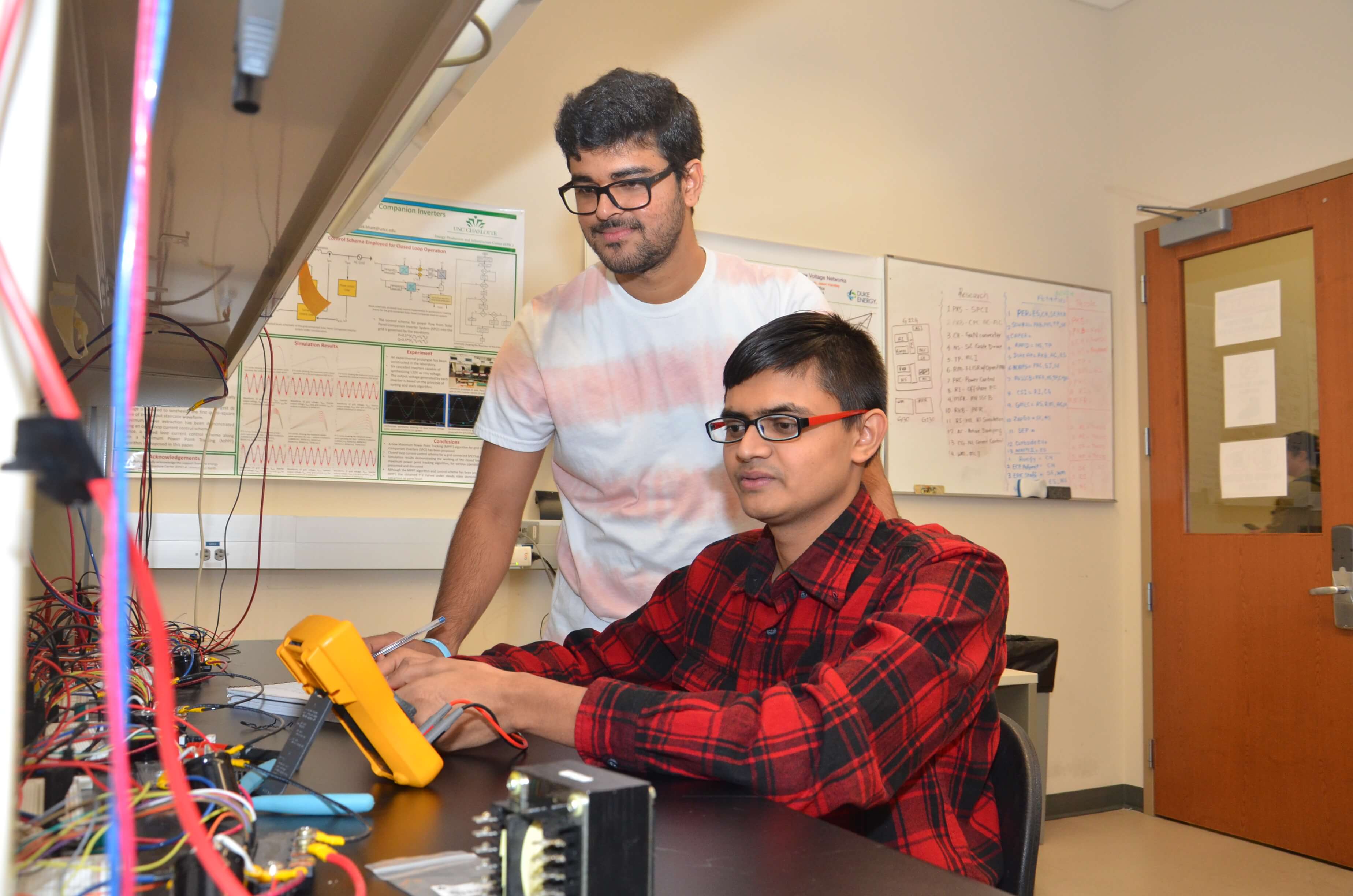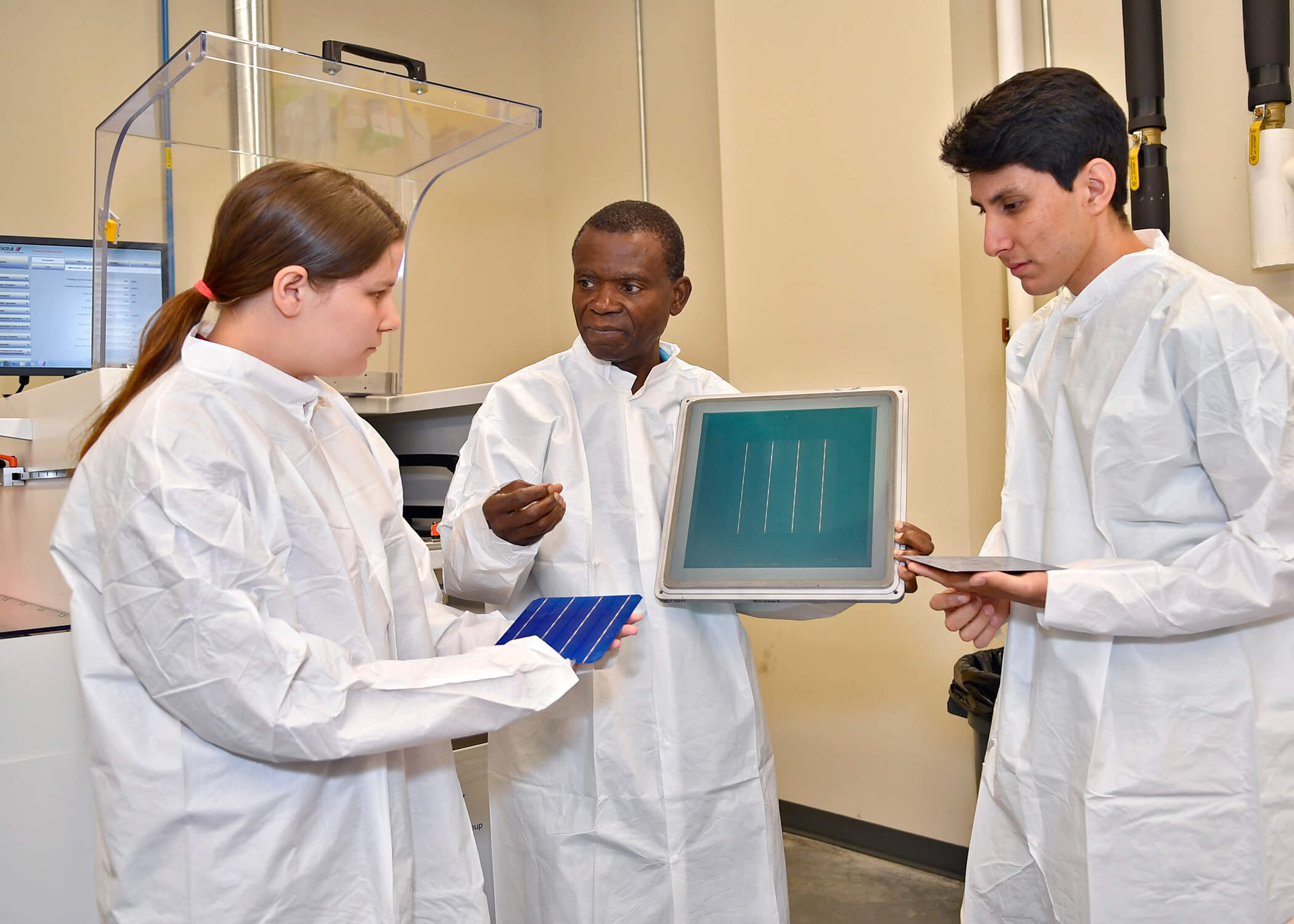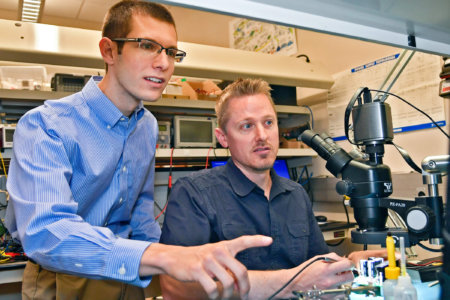Susie Alimi’s experience with hardware and software engineering has given her an advantage in the workplace as a systems engineer. Her engineering degrees and practical experiences gained at the University of North Carolina at Charlotte’s (UNC Charlotte) Department of Electrical and Computer Engineering (ECE) at the William States Lee College of Engineering have played a significant role in helping her to achieve this.
Alimi currently works with General Dynamics Mission Systems, a company that specializes in building products and delivering technology for industries in land, sea, air, space and cyberspace. In the simplest terms, she programs, tests, and delivers radios for airplanes.
“My role involves programming the data communications between the radio and the airplane’s computer, to testing it in a lab environment,” she says. “Because I have a background in hardware, I can tell when the hardware is misbehaving versus when it’s a software issue. I can troubleshoot end-to-end, whereas most of my colleagues would need further guidance as most of them only have either a computer science or electrical engineering background.”
Alimi graduated with a Bachelor of Science in Computer Engineering (BSCpE) degree and a Master of Science in Electrical Engineering (MSEE) from UNC Charlotte’s ECE. She adds, “My concentration in robotics as an EE master’s student helped significantly.”
Career-changing engineering degrees
UNC Charlotte’s ECE is one of the US’s top engineering schools, offering programs leading to master’s and doctoral degrees in electrical engineering. ECE is home to a multidisciplinary faculty with excellent national and international reputations. All of their academic programs are designed to strike a balance between theory and practical knowledge. The Department offers two undergraduate degrees: the Bachelor of Science in Electrical Engineering (BSEE) and the BSCpE.

Source: UNC Charlotte – Department of Electrical and Computer Engineering
Apart from the MSEE, their well-structured postgraduate programs include the newly approved M.S. in Computer Engineering (MSCPE) program, which is designed to impart advanced knowledge on current and future generation computer hardware and software technologies. The PhD in electrical engineering provides students with advanced knowledge and research experience in a chosen area of electrical and computer engineering.
Alum Nitish Kale, who graduated with an MSEE in 2015, said: “UNC Charlotte has a good computer and electrical engineering program, including courses in embedded systems and robotics, real-time operating systems, and computer architecture. There’s also the option of taking courses from other departments, including power electronics and mechatronics.”
The program helped lay the foundations for his career as an embedded software engineer.
“Doing my embedded systems research project under professor Dr Jim Conrad gave me good industry exposure and strengthened my fundamental knowledge in the field,” he said. Kale added that ECE’s professors “are really good” in computer engineering and have excellent industry contacts, which can be useful in helping students find a job after graduation.
An unparalleled learning experience
Rodney Itiki is a PhD in electrical engineering candidate at the ECE. The Brazilian chose this program for its strong energy research focus. “I got all the information I needed, mostly from EPIC’s YouTube videos,” he says.
UNC Charlotte is home to the Energy Production and Infrastructure Center (EPIC), a research hub that provides education and applied research opportunities to students with energy-related interests. EPIC was formed in response to the need to supply educated and highly trained engineers qualified to meet the demands of the energy industry and to provide sustainable support for applied research.

Source: UNC Charlotte – Department of Electrical and Computer Engineering
“A significant challenge in years to come is fighting climate change by the reduction of greenhouse gas emissions in the power and energy sector,” shares Itiki. “The US will demand major efforts to develop renewable and sustainable energy, including wind, solar, and offshore power, for a low-carbon transition and fulfill commitments to the Paris Agreement. My interest in electrical engineering now is driven by these challenges.”
He has had several memorable experiences at UNC Charlotte, including presenting papers in two conferences outside North Carolina. “I’m proud of myself for being part of the American scientific community and developing necessary research about renewable energy for the US’s benefit and, more broadly, for humanity,” he enthuses.
Research prowess
Like Itiki, part of what drew Kirti Singh, an MSEE student from India, to UNC Charlotte was EPIC. “The state-of-the-art research center intrigued me with its interdisciplinary energy-related research projects. That is when I knew I wanted to be a part of it. The Graduate School and the International Student and Scholar Office at UNC Charlotte made the decision easier by providing seamless communication,” she explains.

Source: UNC Charlotte – Department of Electrical and Computer Engineering
For Singh, courses such as “Smart Grids: Characteristics & Design,” “Power System Analysis II,” and “Utility Applications of Power Electronics” have been the most intriguing coursework as they have challenged her research and innovative thinking skills. “The faculty is keen and enthusiastic in imparting knowledge and sharing ideas along with being empathetic and communicative to the needs of students,” she notes.
The most impressive feature of UNC Charlotte, however, is its people. “I came across such amazing mentors and instructors who believed in my ability when I was not confident about it,” she says. Her advisor, associate professor Dr Madhav Manjrekar, was always on hand to offer advice and guidance during her research project.
UNC Charlotte is also a great place to live, study and work. Itiki says the campus is home to stunning trails, with birds, squirrels, ducks, deer, flowers, a botanic garden, trees and ponds in sight. He described the campus as “very safe,” with police present to keep an eye out for safety. “The outdoors is a delightful place to relieve stress. Nature on campus is beautiful.”
Follow UNC Charlotte College of Engineering (ECE) on Facebook, Twitter and Instagram













